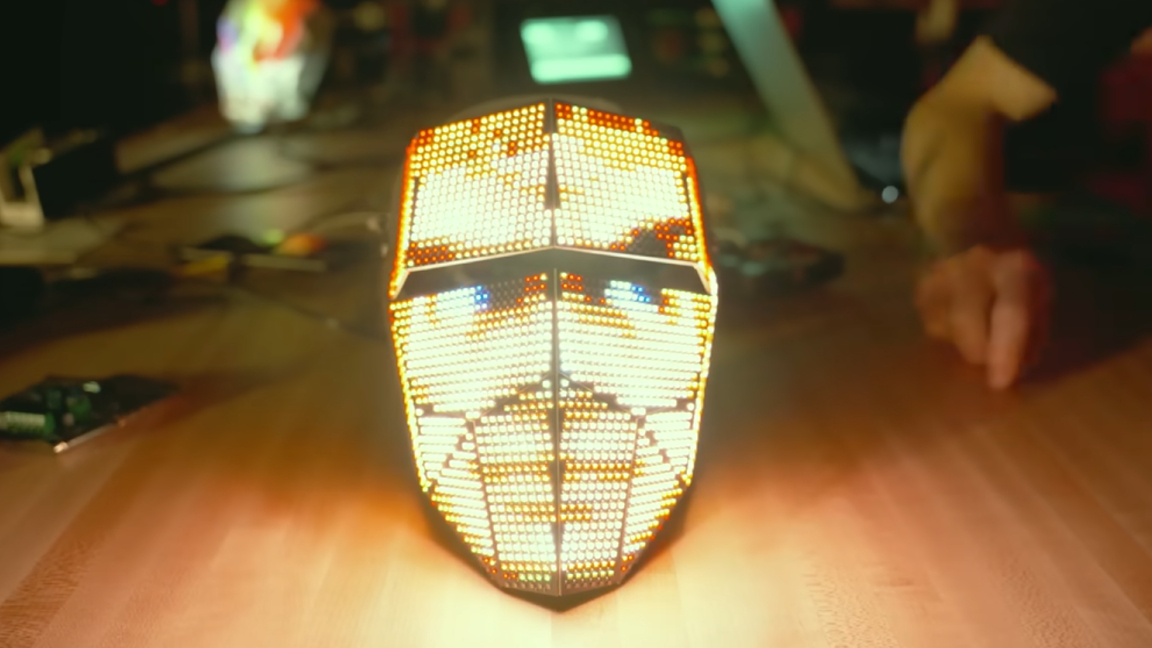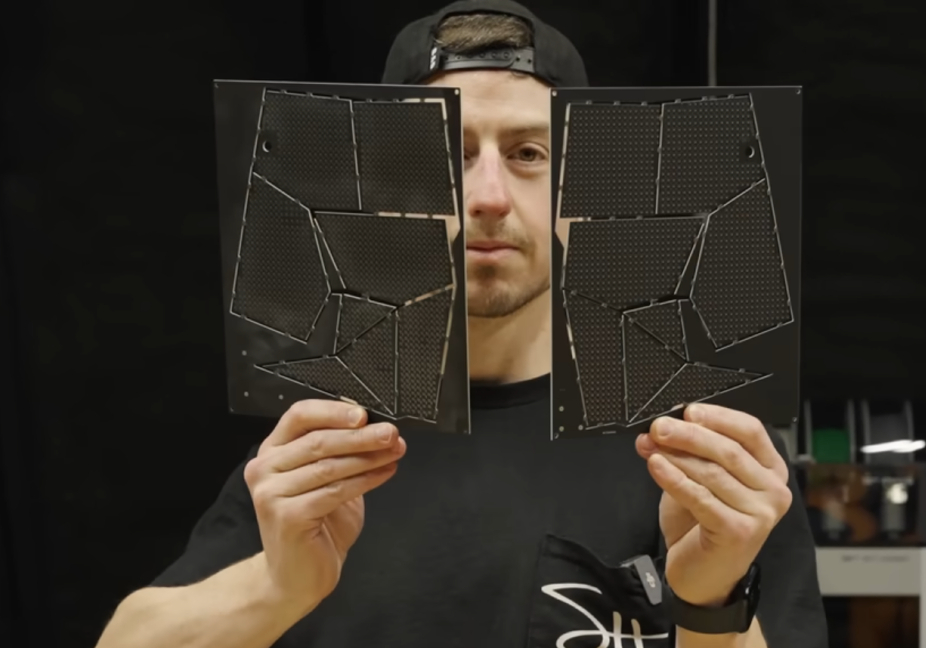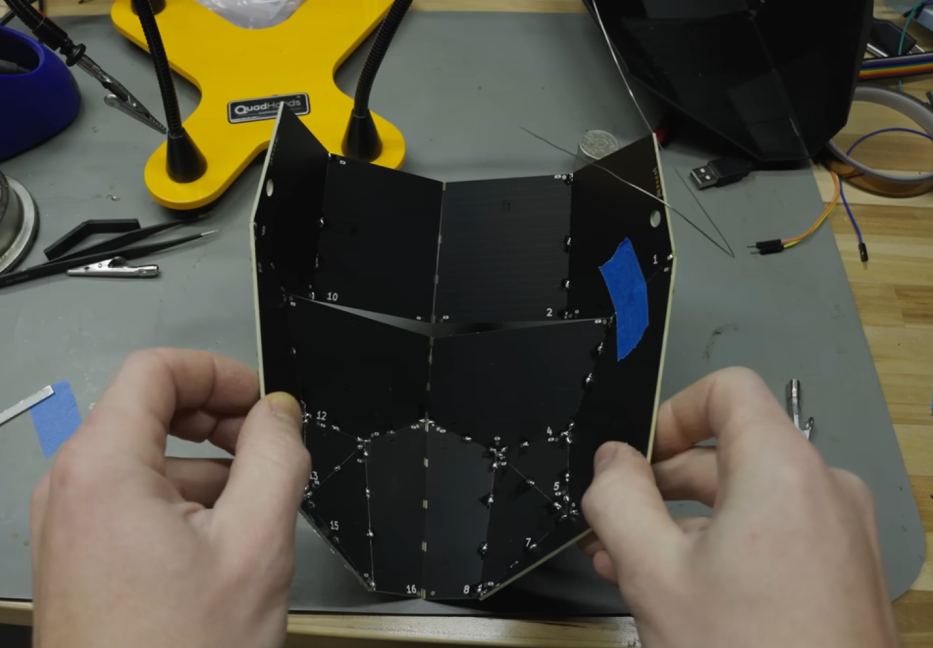
We've covered our fair share of Raspberry Pi-powered LED matrix projects, but this is the first wearable we've seen quite like this. Maker and developer Sean Hodgins has created a mask covered in LEDs that lets you set custom images, changing your face and essentially turns your head into a 3D video player made of matrix panels.
This project was created entirely from scratch and involves a few different of areas of expertise coming together to pull off the end results. There's a fair bit of microelectronics knowledge peppered throughout, of course, but also 3D design work and 3D printing to create the final build. Some hardware was made just for the project. The LED matrix panels were designed and built just for this projects, with Hodgins creating a clever solder tab connector to turn the individual panels into a 3D mask. Other components, like the Pi used to control the matrix panels, were taken from existing projects.
The mask is assembled with separate panels that each function as an individual matrix. With each panel being tested before final assembly. Hodgins, thankfully, used a pick and place machine to place the thousands of LEDs on the panels. Soldering the LEDs to the panels was accomplished using solder paste and a $20 toaster over.
The LEDs, of which there are thousands, are individually addressable which means you can get seriously creative with what's displayed on the mask. According to Hodgins, he ordered thousands of LEDs from Alibaba just for the project.


Controlling that many LEDs is no easy task and although the Raspberry Pi is used as the main controller, a separate board was necessary to bridge the gap. Hodgins opted to use a Pixelblaze LED controller. This board specializes not just in controlling LEDs but specifically ones that are individually addressable like these.
We know that Hodgins programmed the project himself but unfortunately we don't get a good look at the source code so we're not sure exactly how everything operates. That said, he assured us in the video description that he will be putting together a GitHub page with more details in the near future. For now, you can check out a demo of the mask in action over at his official YouTube channel.
If you want to get a closer look at this Raspberry Pi project, you can see more info about its design and assembly process in the official project video. Be sure to follow Hodgins for more updates and future projects, as well.







